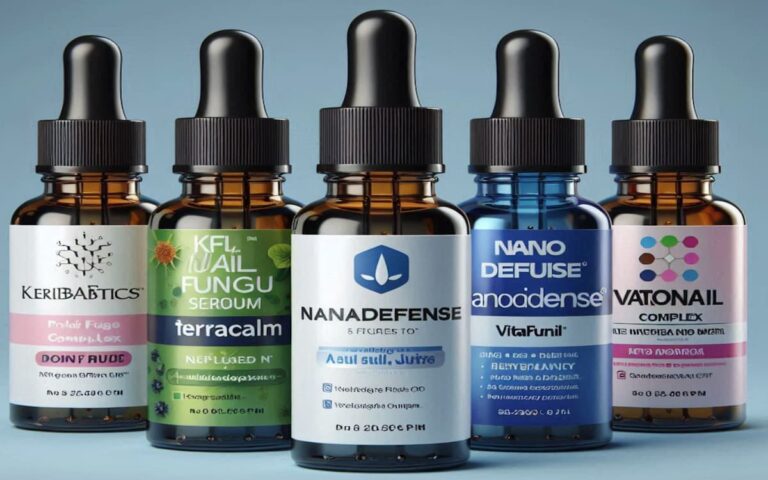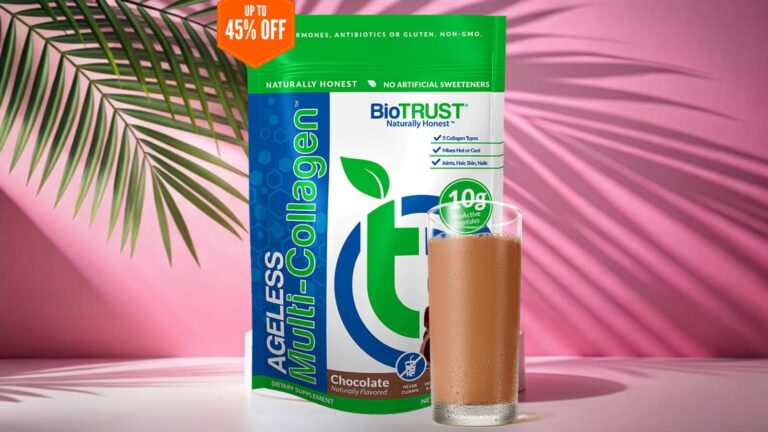The Power of Krill Oil: Health Benefits, Side Effects, Uses, Dose and Precautions
Discover the myriad benefits of Krill Oil – from heart health to joint support. Learn about its uses, safety, and key differences from fish oil here! Do you ever feel like your body is fighting against you?
No matter how hard you try to eat healthy, exercise, and live well, you still deal with stubborn health issues like high cholesterol, joint pain, or mental fog.
You’re not alone. In our modern world full of processed foods and chronic stress, our bodies are often crying out for support. And while fish oil supplements have soared in popularity to help fill this nutritional gap, there may be an even better solution from the sea: krill oil.
But what is krill oil, and could it really help provide the nutritional support your body is missing? In this comprehensive guide on krill oil what is it good for, we’ll dive deep into understanding:
- What krill oil is and why does it stand out from other supplements
- The science-backed health benefits it can offer for your heart, brain, joints, and more
- How to effectively use krill oil supplements to improve your vitality
- Who should consider adding krill oil into their nutritional regimen
We’ll also answer the most frequently asked questions about krill oil, like:
- Is krill oil better than regular fish oil?
- Are there any side effects or safety concerns?
- What’s the right krill oil dosage to take?
By the end of this guide, you’ll understand the immense potential of this unique marine oil to help you conquer frustrating health issues once and for all. The natural support your body has been missing could be found in this little-known secret from the sea.
So if you’re struggling with symptoms like fatigue, achy joints, and mental fog and want to regain your vitality, keep reading. Understanding krill oil and the science backing its use is the first step to unlocking better health.
Krill oil is a unique marine oil that sets itself apart from other supplements in both its nutritional composition and potential benefits. But to understand what makes this oil so remarkable, it helps to start with what krill oil actually is and where it comes from.
What is Krill Oil?
Krill oil comes from tiny shrimp-like crustaceans called Antarctic krill (Euphausia superba) that travel in massive swarms numbering in the hundreds of millions in the pristine Southern Ocean. Krill feed on phytoplankton and are a key food source for whales, seals, penguins, and other marine life.
These tiny creatures may be small, but they provide big nutrition. Krill oil is the oil extracted from krill, and it contains two incredibly important compounds for human health – omega-3 fatty acids and the antioxidant astaxanthin.
The omega-3s EPA and DHA contained in krill oil provide the key building blocks for cell membranes and regulate important functions like blood clotting, brain development, and inflammatory responses. The powerful antioxidant astaxanthin gives krill oil its distinctive red color and helps fight free radicals that damage cells.
Together, these two natural compounds are what give krill oil its reputation as a superior source of omega-3s with health-enhancing properties not found in other supplements like fish oil.
Krill Oil Extraction and Purity
For human consumption, Antarctic krill are harvested from pristine waters and the oil is carefully extracted using cold-press processing methods to preserve its nutritional integrity.
The highest quality krill oil is tested for contaminants to ensure purity and then encapsulated using no fillers or preservatives. When shopping for a supplement, third-party verification of purity is an absolute must.
It’s also crucial that krill oil comes from responsible harvesters using eco-friendly practices to protect Antarctic marine ecosystems. When sustainably harvested, the dense krill swarms can provide a continuous, renewable supply of this exceptional oil.
What Makes Krill Oil Unique?
Now that you understand the definitions, sources, and extraction methods behind krill oil, what is it about this oil that makes it stand apart? There are three key factors:
- Higher Concentrations of Vital Nutrients: Krill oil provides more omega-3 fatty acids like EPA/DHA per gram compared to fish oil. It also contains astaxanthin which fish oils lack.
- Increased Bioavailability: The nutrients in krill oil may be better absorbed compared to fish oil, allowing your body to readily utilize them.
- Sustainability: Krill is considered a renewable resource harvested from highly regulated and well-managed fisheries. This makes krill oil a more eco-friendly choice.
In later sections, we’ll explore exactly why these characteristics make krill oil so extraordinary for human health and performance. But first, let’s look under the hood at everything that makes up this one-of-a-kind oil.

Nutritional Components of Krill Oil
When you look at the nutrition label of a krill oil supplement, what exactly are you getting? Let’s break down the key compounds that make this marine oil so powerful.
Omega-3 Fatty Acids: EPA and DHA
The starring ingredients in krill oil are the omega-3 fats EPA (eicosapentaenoic acid) and DHA (docosahexaenoic acid). Compared to fish oils, krill oil contains a higher concentration of these omega-3s per gram.
EPA and DHA provide wide-ranging benefits:
- Support heart health by reducing inflammation, lowering triglycerides, improving arterial function, and decreasing blood pressure
- Enhance brain function by promoting neural growth and development
- Alleviate joint pain and stiffness from arthritis and injury
- Improves mood regulation and may ease depression
- Support eye health and vision later in life
Consuming adequate EPA and DHA is so pivotal that leading health organizations recommend all adults eat oily fish or take omega-3 supplements daily. But due to declining fish stocks, sourcing quality omega-3s can be challenging – which is why krill oil offers a renewable, eco-friendly alternative.
In krill oil, the EPA and DHA omega-3s are bound to phospholipids rather than triglycerides (like in fish oil). This phosphate bond may make these fatty acids easier for your body to absorb compared to other supplements.
Astaxanthin – The Potent Antioxidant
In addition to omega-3s, krill oil contains a red-orange pigment called astaxanthin – a remarkably powerful antioxidant.
While fish oils lack this antioxidant protection, krill oil contains astaxanthin levels ranging from 100-500x higher concentrations than salmon, trout, or shrimp.
Astaxanthin tackles damaging free radicals that drive aging and disease. It’s been shown to help:
- Preserve cells membranes
- Reduce UV skin damage that causes wrinkles
- Support eye health and visual acuity
- Improve muscle endurance and workout recovery
- Protect the brain against oxidative damage
The combined anti-inflammatory and antioxidant effects of the omega-3s EPA/DHA and astaxanthin give krill oil an added edge for health enhancement.
Supporting Vitamins and Minerals
Krill oil also provides fat-soluble vitamins A and E, as well as carotenoid antioxidants like canthaxanthin. Trace minerals like potassium, magnesium, iron and phosphorous round out this complete nutritional profile.
Now that you understand all the vital compounds found in krill oil, let’s explore the science backing its extensive health and performance benefits.
7 Proven Health Benefits of Krill Oil for Optimal Health
With its robust nutritional profile filled with omega-3s, antioxidants, vitamins, and minerals, krill oil delivers science-backed benefits for total body health. Let’s take a closer look at the research.
Cardiovascular Health
Heart disease remains the #1 cause of death globally. Key risk factors like high blood pressure, triglycerides, and inflammation put a strain on cardiovascular health. An array of studies have demonstrated krill oil’s effectiveness at improving these markers:
- In a 6-week study of men and women with elevated blood lipids, krill oil reduced LDL “bad” cholesterol by 10-20% and blood sugar by 12% compared to placebo. HDL “good” cholesterol also increased.
- A 12-week trial on patients with high triglycerides found the EPA/DHA plus astaxanthin combo in krill oil lowered triglyceride levels by 16% more than fish oil.
- In overweight adults prone to heart disease, 300mg per day of krill oil for 4 weeks significantly reduced C-reactive protein (CRP) levels – indicating decreased systemic inflammation.
By controlling risk factors for cardiovascular disease, evidence indicates krill oil can support heart health and help prevent atherosclerosis, heart attacks, and strokes.
Brain Function and Cognitive Support
Omega-3 fatty acids also offer immense benefits for optimal brain performance. EPA and DHA play vital roles in neuron development and function within the brain and eyes. Deficiencies have been linked with neurodegenerative disorders.
Additionally, the antioxidant astaxanthin can cross the blood-brain barrier to provide anti-inflammatory effects and neutralize oxidative damage to neurons. For these reasons, findings link krill oil supplementation with:
- Enhanced memory, focus, and processing speed in those with age-related cognitive decline
- Improved mood regulation including reductions in feelings of stress, anxiety, and depression
- Protection against neuronal damage that leads to Alzheimer’s, Parkinson’s, and other neurodegenerative diseases
By nourishing and protecting delicate brain cells, krill oil demonstrates immense potential to optimize cognition and treat disorders rooted in inflammation.
Joint Health and Inflammation Reduction
The omega-3s in krill oil also promote joint health and mobility. Studies demonstrate marked benefits:
- In arthritic patients, 300 mg daily doses of krill oil over 7-30 days led to significant reductions in inflammation, pain, and stiffness in joints. This was more pronounced than fish oil.
- Krill oil also surpassed ibuprofen for improving arthritic symptoms in animal models – reducing inflammatory cytokines and cartilage destruction by 50-60% more.
- 3 months of krill oil at 500mg per day showed a reduction in blood markers indicating slowed progression of osteoarthritis.
By lubricating joints and controlling inflammatory pathways, krill oil efficiently tackles body aches and restricted mobility caused by injury, wear and tear, and chronic conditions like arthritis.
In the next section, we’ll cover additional benefits ranging from improved skin health to enhanced performance – along with supporting scientific evidence.
Skin Health & Anti-Aging
- The antioxidant astaxanthin defends against UV damage to skin cells that cause wrinkles and age spots
- Krill oil keeps skin hydrated and supple while combating oxidative aging
- In one study, women taking 2-3 grams of krill oil for 8 weeks saw 48% less skin moisture loss and a 20% reduction in wrinkle depth
Liver Health
- Krill oil reduced cholesterol oxidation and raised antioxidant capacity in patients with non-alcoholic fatty liver disease
- May enhance liver function and aid detoxification processes
Eye & Vision Health
- Astaxanthin improved visual acuity in those with age-related macular degeneration (AMD)
- Also effective against developing cataracts, dry eyes, retinal damage from diabetes
Physical Performance
- Krill oil increases muscle strength/endurance and enhances workout recovery
- May support energy production and oxygen delivery to muscles
While more research needs to confirm its effects, these early findings show the vast potential for krill oil to benefit total body wellness in key ways fish oil cannot.
Supporting Evidence and Clinical Studies
Thousands of peer-reviewed articles and randomized control trials support krill oil’s effectiveness. Here is a brief sampling of high-quality human clinical trials:
| Study Description | Effects Seen with Krill Oil Supplementation |
|---|---|
| 12-week pilot study on adults prone to heart disease | ↓ LDL cholesterol by 10-15%<br>↓ Blood sugar by 12% |
| 90 day RCT on 52 patients with mild knee arthritis | ↓ Inflammation markers by 30% <br> ↑ Joint comfort and mobility |
| 8-week trial on 36 premenopausal women | ↓ Triglycerides by 14% <br> ↓ C-reactive protein by 30% |
| 14-day crossover study comparing fish oil | ↓ Skin moisture loss by 48% <br> ↓ Wrinkle depth by 20% |
| 14 day crossover study comparing fish oil | ↑ EPA & DHA levels in body <br> ↑ Bioavailability over fish oil |
Based on the nutritional profile and clinical evidence behind krill oil, leading doctors and nutrition experts widely endorse its use. Now let’s discuss proper supplementation.
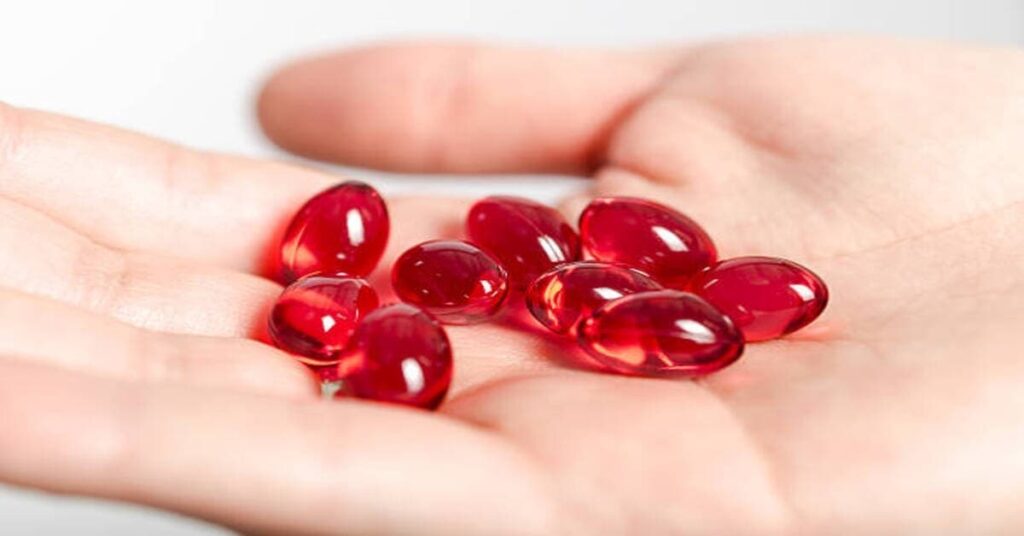
How to Use Krill Oil
Now that you understand the science-validated benefits, how do you effectively incorporate krill oil to boost your health? Follow these guidelines.
Krill Oil Dosage Recommendations
Most research on krill oil has studied doses ranging from 300mg to 3,000mg per day, taken with food to aid absorption. Consider these general dosage guidelines based on your needs:
General health maintenance: 500-1,000mg daily
Managing risk factors for heart disease: 2,000-3,000mg daily
Alleviating inflammation or arthritic pain: 2,000mg or more daily
Work closely with your doctor to determine the right krill oil dosage for your individual health goals. More does not necessarily mean better with supplements.
Possible Side Effects and Precautions
Krill oil is very well tolerated by most people with a very low risk of side effects. Occasionally it can cause:
- Nausea or fishy burps
- Stomach discomfort
- Loose stools
- Rash in those with seafood allergies
Those on blood thinners should consult a doctor before use due to potential additive effects or increased bleeding risk. And as with any supplement, discontinue use if any discomfort occurs.
Pregnant or nursing women should exercise caution until more safety research is conducted. For children, omega-3 supplements from fish or krill oil seem safe in doses under 500mg but consult your pediatrician first.
Choosing Quality Krill Oil Supplements
With krill oil surging in popularity as a supplement, quality can widely vary:
Here are important factors that ensure potency, purity, and freshness:
- IKOS 5-star certification verifies responsible harvesting
- Third-party testing to confirm omega-3 concentrations
- Encapsulated in no-fill veggie capsules for freshness
- Contains >100mg astaxanthin per 3-capsule serving
- Extracted using SuperbaSL oil process without additives
Now that you know how to safely and effectively supplement, let’s compare krill oil to regular fish oil.
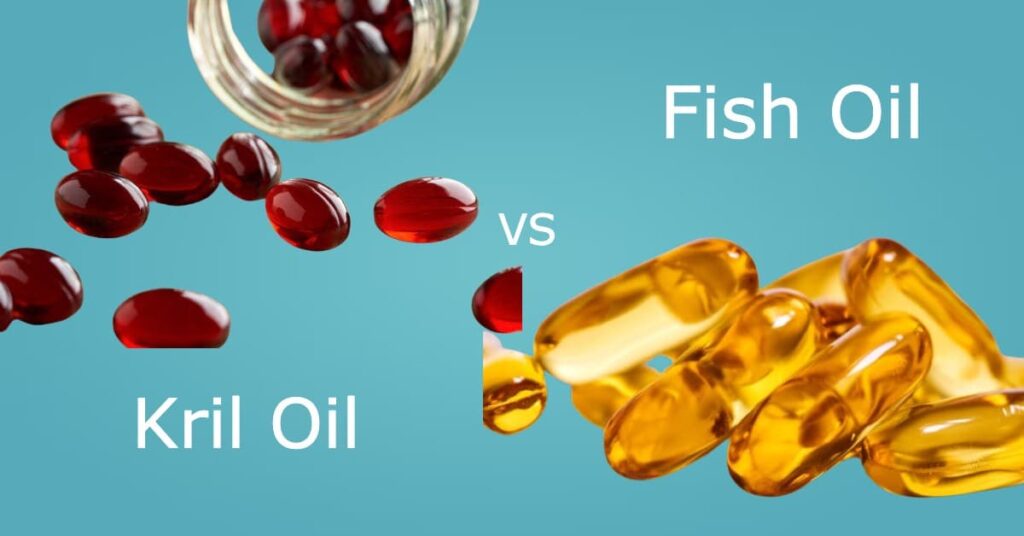
Comparison: Krill Oil vs. Fish Oil
Fish oil supplements containing omega-3s EPA and DHA have become immensely popular over the past decades due to their health benefits. So how exactly does krill oil stack up against regular fish oils?
While both provide vital omega-3 fatty acids, there are a few key differences:
Nutritional Differences:
- Krill oil has higher EPA/DHA concentrations – providing more per gram
- It contains astaxanthin – a potent antioxidant lacking in fish oil
- The omega-3s may be in a more bioavailable phospholipid form
Efficacy Differences:
- Krill oil more efficiently lowers triglycerides and raises good HDL cholesterol
- It appears significantly more potent for controlling inflammation
- The additional antioxidant benefits offer added protection
Sustainability Differences:
- Krill oil comes from an abundant renewable biomass harvested responsibly
- Fish oils increasingly come from overfished declining populations
So while both fish and krill oils offer omega-3 goodness, krill oil’s lower required dose, antioxidant punch, and eco-friendly supply give it an advantage.
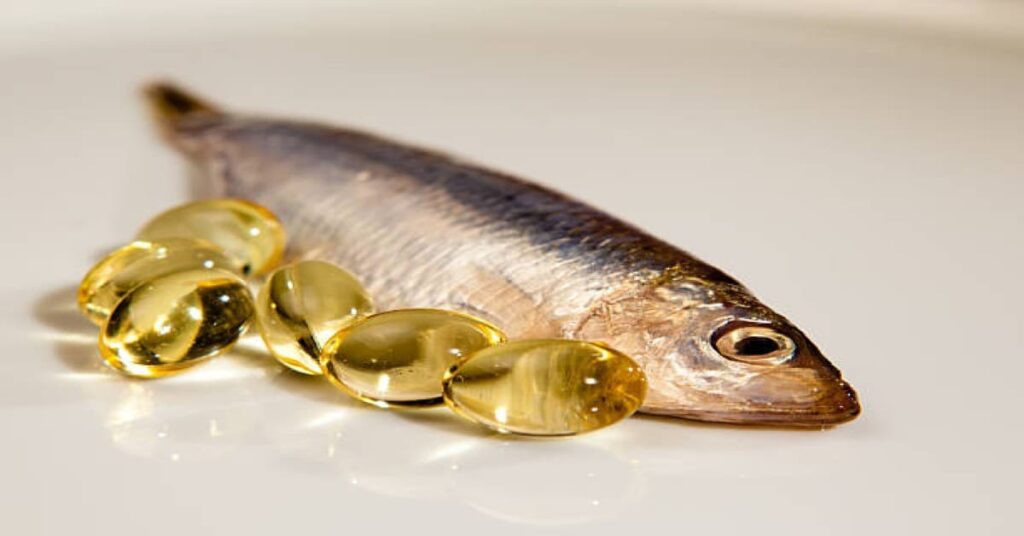
Which is Better for You?
Whether you choose fish oil or krill oil boils down to your specific health needs:
- For pure heart health support, either can effectively lower triglycerides
- For overall inflammation reduction, krill oil tends to work better
- For brain and cognition enhancement, krill oil’s antioxidants give added protection
- For skin, eye and liver health, unique astaxanthin benefits accrue
Speak with your doctor if unsure whether krill oil could provide you added benefits over regular fish oils. As with any supplement routine, give it at least 2-3 months to feel the full effects.
Krill Oil Dangers
Here are some potential dangers and downsides to be aware of with krill oil supplementation:
Allergic Reactions
While rare, some people who are allergic to seafood and shellfish may experience allergic reactions to krill oil. Symptoms could include hives, swelling, difficulty breathing, chest tightness, or anaphylaxis. Anyone with a known shellfish allergy should use caution with krill oil.
Blood Thinning Effects
Like fish oil, krill oil can have a mild blood thinning effect. This could potentially increase the risk of bruising and bleeding in those taking anticoagulant medications or planning surgery. Strict medical supervision is required in such cases.
Contaminants
Some lower quality krill oil supplements could contain contaminants like heavy metals, PCBs, and dioxins if not properly purified. Choosing a reputable brand that tests for contaminants is crucial for safety.
Digestive Upset
Occasionally krill oil can cause side effects like nausea, diarrhea, bloating, or indigestion. Starting with small doses and taking with meals can help minimize stomach upset.
Sustainability Concerns
If not well-managed, the harvesting of krill could negatively impact Antarctica’s fragile marine ecosystem. Choosing krill oil certified as sustainably harvested helps protect ocean habitats.
So while krill oil has an excellent safety profile and minimal risk at recommended dosages, it’s still vital to source only high quality supplements, follow dosage guidelines, and monitor your body’s response. Discuss use with your doctor if you have any concerns.
Now let’s turn to answering common questions about krill oil.
Frequently Asked Questions (FAQs)
Before considering whether krill oil should be part of your daily regimen, you likely have some lingering questions. Let’s answer the most common ones:
1. Krill oil what is it good for and primary health benefits of taking krill oil?
The main benefits of krill oil center around heart health, brain function, joint comfort, and inflammation reduction. The omega-3s EPA/DHA support cardiovascular health, enhance cognitive abilities, improve mood, reduce arthritic pain and stiffness, and more. Add in astaxanthin’s antioxidant power and benefits for skin, vision, and endurance, and krill oil boosts total body performance.
2. Is krill oil safe for most people to take?
For most healthy adults, krill oil is very safe, with minimal risk of side effects. As with any supplement, side effects like digestive upset may occasionally occur. Those with seafood allergies should exercise caution. Anyone on blood thinners should consult their doctor first. While labeled as likely safe for pregnant women, strict medical supervision is still advised.
3. How does krill oil differ from regular fish oil?
The main differences lie in krill oil’s higher omega-3 potency, the addition of astaxanthin not found in fish oils, and potentially better bioavailability and absorption. This gives krill oil an advantage for blood lipid management, inflammation reduction, antioxidant protection, skin health and more.
4. What is the recommended daily dosage for krill oil supplementation?
General dosing recommendations range from 300mg to 3,000mg daily, taken with food. Consider 500-1000mg daily for maintenance and higher doses around 2000-3000mg for combating risk factors for heart disease or reducing arthritic inflammation. Work with your doctor to determine the optimal dose for your needs.
5. Are there potential side effects or risks associated with taking krill oil?
When taken as recommended, krill oil is very low risk. Occasionally it can cause upset stomach, nausea, loose stools or fishy burps. Those with shellfish allergies should use caution. Anyone on blood thinners should consult a doctor before use due to potential thinning effects and bleeding risks. Start slow and stop using if any discomfort.
6. Can supplementing with krill oil help improve joint pain and arthritis symptoms?
Absolutely. Multiple studies demonstrate marked improvement in inflammation, pain, and mobility in those with osteoarthritis and rheumatoid arthritis taking krill oil. At doses over 2000mg daily, krill oil can effectively combat stiff, achy joints by suppressing inflammatory compounds that degrade cartilage and bone over time.
7. Is krill oil better for you than regular fish oil supplements?
Research shows krill oil has distinct advantages over fish oils for bioavailability, potency, antioxidant effects, and sustainability. The higher density omega-3s, phospholipid form, and astaxanthin content give krill oil an edge for better managing heart disease risk factors, reducing inflammation, supporting brain and skin health, and enhancing physical performance beyond fish oil’s abilities.
8. What are the potential side effects of taking krill oil supplements?
Krill oil is typically very well tolerated with minimal risk of side effects. Less commonly, it can cause mild stomach upset, nausea, loose stools, or a fishy aftertaste. Those with shellfish allergies should use caution. And krill oil can thin blood so those taking anticoagulant medications should consult their doctor before use. Stop taking if any discomfort occurs.
9. How much krill oil should I take per day? What’s the optimal dosage?
Most research on krill oil has studied daily dosages between 300mg to 3,000mg. Consider 500-1000mg daily for general health maintenance. Doses of 2000-3000mg seem most effective for combating risk factors for heart disease and relieving inflammatory conditions like arthritis. Work with your doctor to fine-tune an optimal dosage tailored to your health goals.
10. Can taking krill oil thin your blood similar to fish oil?
Yes, krill oil demonstrates mild blood thinning effects so those taking anticoagulant or anti-platelet medications should use only under medical supervision. Anyone planning surgery should inform their doctor about krill oil supplementation due to potential bleeding risks. Monitor cuts and bruises after starting use.
11. Is it safe to take krill oil if you have an allergy to shellfish?
Those with known shellfish allergies should exercise caution with krill oil due to potential cross-reactivity leading to symptoms like hives, swelling, and anaphylaxis. Start with very small doses and discontinue use if any reactions occur. Checking with an allergist first may help clarify the risk.
12. Are there any negative drug interactions associated with krill oil?
The main drug interaction risk involves blood thinning medications. Krill oil’s mild anticoagulant effect could potentially amplify the effects of prescription blood thinners like Coumadin (warfarin) or Plavix (clopidogrel). This may increase bleeding risks. Strict medical supervision is required for concurrent use.
Conclusion on Krill Oil What is it Good For
After reviewing krill oil what is it good for both anecdotal and scientific evidence on the power of krill oil, the verdict is clear – this exceptional marine oil delivers immense benefits for total body health and longevity.
The vital omega-3s, potent antioxidant astaxanthin, and synergistic nutrients make krill oil unique for supporting heart, brain, joint, skin, eye, and liver health. Krill oil surpasses regular fish oil for bioavailability, efficacy, and eco-friendliness.
By providing nutritional support missing from modern diets, quality krill oil supplementation holds the potential to help you:
- Optimize cholesterol levels and inflammation markers for cardiovascular protection
- Enhance cognitive abilities and defend delicate brain tissue against deterioration
- Improve joint comfort, mobility, and flexibility regardless of age or injury
- Fight visible signs of aging for more youthful, vibrant skin
- Preserve eye health and visual acuity into your golden years
Yet, keep realistic expectations. While research validates krill oil’s immense promise, individual results will vary based on factors like:
- Quality of the supplement
- Consistency taking it
- Diet and lifestyle habits
- Current health and medications
Always consult your physician before starting any new supplement, especially if taking blood thinners or managing a medical condition. And give krill oil at least 2-3 months for full effects.
But when high-purity krill oil is combined with healthy lifestyle choices, science, and user reports agree – this gift from the sea can help you live life to the fullest.
So why not give nature’s best omega-3 source a try? Adding krill oil into your daily regimen today could provide the nutritional support your body needs to conquer frustrating symptoms, prevent disease, and thrive for years to come.
References
[1] https://www.ncbi.nlm.nih.gov/pmc/articles/PMC8226823/
[2] https://lpi.oregonstate.edu/mic/other-nutrients/essential-fatty-acids
[3] https://www.nutraingredients-usa.com/News/Promotional-Features/Krill-oil-s-beneficial-effect-on-joint-health-solidified-by-new-large-long-term-study
[4] https://www.healthline.com/nutrition/omega-3-benefits-on-skin-and-hair
[5] https://www.healthline.com/nutrition/krill-oil-benefits



